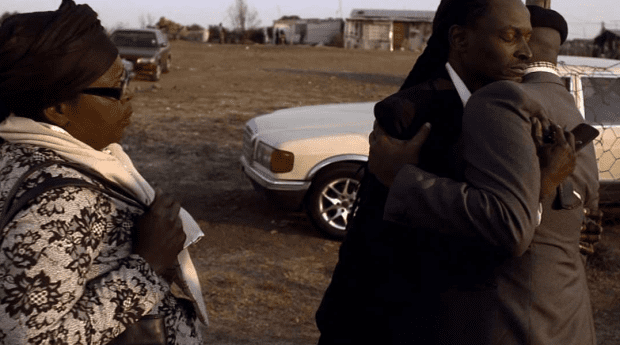Thanks to film, there’s been a new dialogue in Zanzibar.
The Zanzibar International Film Festival (ZIFF), one of East Africa’s largest and most prestigious festivals took place from July 18 to 26, 2015 — and this year, the festival was promoting an open and progressive dialogue on lesbian, gay, bisexual and transgender issues.
Located just over 30 kilometres off the coast of mainland Tanzania, Zanzibar is home to a population of just over a million people. As over 90 percent of the population is Muslim, international travelers are cautioned to mind the island’s strongly conservative culture.
And like in many countries in East Africa, homosexuality is still illegal in Tanzania.
Inspired by the hometown crowd’s traditional values, ZIFF is attempting a discussion on LGBT issues — a topic that is still largely taboo on the island and across the region. Months before screenings kicked off, ZIFF’s social media feeds were already loudly hyping three LGBT films.
“At ZIFF, we use film almost as a door to open the hearts and minds of a community that is very conservative,” says festival director Martin Mhando.
“Here in Zanzibar, this discussion is a difficult one to entertain — but we have been able to start a conversation and break down traditional barriers.”
But in order to do so, ZIFF has had to overcome institutional roadblocks as well.
ZIFF must obtain permission from Zanzibar’s censorship board for every film it wishes to screen, Mhando says.This year, the body approved three films on LGBT issues for screening.
“This shows that the board is recognizing that these films are of importance and are valid enough to be shown,” he says. “You couldn’t do that a few years ago, and this year it was easier than last.”
Malawi’s Mwizalero Nyirenda very likely had something to do with that.
Last year, his film Umunthu — a first-person documentary offering a perspective on homosexuality in Malawi — took home the festival’s Sembene Ousmane Award for films on development in Africa.
“The story in Zanzibar is the same story here: it is also illegal,” Nyirenda says. “The message is to understand that the issue itself is very complex in Africa. And that if we talk about it we can start creating our own understanding and African response to the idea.”
Following in Nyirenda’s footsteps are short-documentary films Camouflage and As I Am from Germany and South Africa, respectively. Both films explore issues relating to sexuality from around the globe.
Also screening is Vincent Baumont’s documentary Red Over the Rainbow, a feature that looks at Vietnam’s growing gay rights movement.
“Vietnam is on the way to being the first country in Asia to allow for same-sex marriage,” Baumont says. “I want it to be an example, that this is a human right that is also a priority in other countries and not just Western countries.”
He thinks his film’s message becomes more relevant and powerful once you consider where it comes from.
“When you show what is happening in Vietnam, you cut any arguments like homosexuality is a Western scene,or [that] it only happens in democratic, Westernized, decadent societies,” he says.
De-bunking myths that homosexuality is a Western phenomenon is also something Nyirenda tried to tackle with Umunthu.
“We always regard it as something which is Western, which it is not,” he says. “The film itself tries to question all these kind of ideas that we have agreed on as a society, so I believe we need to ask those questions really.”
He adds that the film’s success at last year’s festival was an important step forward in advancing the conversation.
“It was kind of a surprise, especially as the film was screened in a place where [homosexuality] is illegal, and for me I felt proud,” he says. “It made a very big impact in Malawi that the film had won an award somewhere else.”
That kind of impact is something Mhando — and ZIFF — hopes to take forward this year and into the future.
“I think it is a good insight to our society that it considered a film on LGBT issues was worthy of awarding,” he says.
“We are trying to open a space for discussion and to see other ways to see and learn about the LGBT community.”

 Why you can trust Xtra
Why you can trust Xtra


